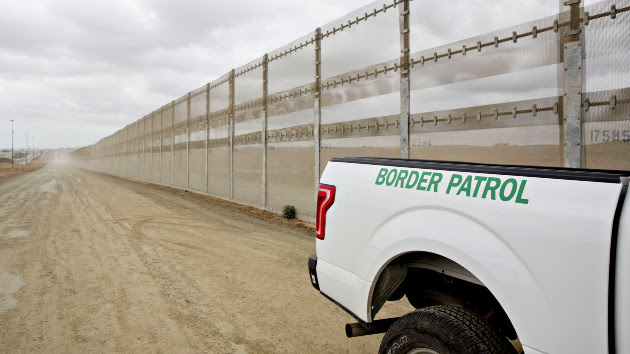
(WASHINGTON) — House Republicans are set this week to once again seize on the issue of U.S. immigration following a trip to see the Biden administration’s border security apparatus firsthand.
On Tuesday, the House Homeland Security Committee — now under Republican control — will hold its first full hearing on immigration since President Joe Biden took office. The panel will bring forth a variety of witnesses, including a mother to two young people who died of opioid overdoes and a hospital executive from Arizona who is expected to testify to the level of uncompensated care provided to migrants who entered the country illegally.
“We’re going to show the human costs to every American,” Chairman Mark Green told ABC News. “We’re going to show the financial costs. We’re going to show the criminal costs.”
Green led members on a trip to the Mexican border last week to meet with regional officials and observe U.S. Customs and Border Protection operations.
“It’s been eye-opening,” he said, adding that he heard extensively from border officials about the diversionary tactics used by criminal smuggling organizations.
After working to roll back many of the hardline immigration measures under former President Donald Trump’s tenure, the Biden administration has more recently instituted policies it says are designed to incentivize lawful and humane travel to the U.S. while maintaining other restrictions, including on asylum.
“Under this administration, our department has been executing a comprehensive strategy to secure our borders and rebuild our immigration system,” Homeland Security Secretary Alejandro Mayorkas said in testimony before the House last year.
He contended then that “we inherited a broken and dismantled system that is already under strain.”
Over the past two months, the Biden administration has rolled out a crackdown on asylum claims — drawing the ire of immigration advocates — while ramping up efforts to more quickly expel or deport migrants who illegally cross the southern border.
At the same time, the administration has offered new, yet narrow, pathways for migrants to obtain temporary status in the U.S. that allows them to seek humanitarian protections.
Biden officials maintain that the dual-track approach is essential for deterring frivolous claims for refuge in the U.S. while keeping options open for those fleeing violence and persecution, predominately in Central and South America.
The change in policy is the latest target for Republicans who have repeatedly challenged the administration with legal action over its immigration moves. Last month, 20 states with Republican attorneys general sued to stop some of the Biden administration’s latest immigration policies.
As Republicans have done throughout the Biden administration, the House Homeland Security Committee is expected to link the scourge of opioid deaths to what they claim are security lapses at the border.
GOP critics point out that the vast majority of smuggled narcotics — particularly the ultra-deadly synthetic opioid fentanyl — are trafficked through legal ports of entry. They say the surge in unauthorized migration is a separate matter.
Green told ABC News that criminal organizations are engaging in diversionary tactics, forcing authorities who would otherwise stop smuggling to turn their attention to stopping migrants.
However, the U.S. Border Patrol is a distinct federal agency and guards the vast stretches of land between official border crossing stations. And while the Department of Homeland Security has at times surged resources from elsewhere to address large numbers of migrants, Democrats have also proposed record funding for Border Patrol staffing as well as new resources for ports of entry.
Congress has repeatedly been stymied on passing bipartisan immigration legislation — given the sharp policy differences on the issue, largely among Republicans — much less the level of comprehensive reform called for by nearly every party involved in the debate.
Copyright © 2023, ABC Audio. All rights reserved.
